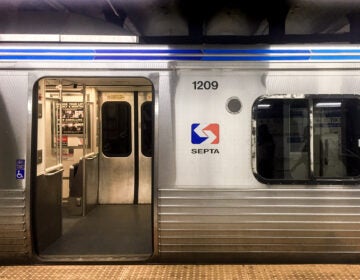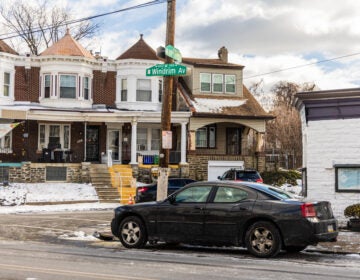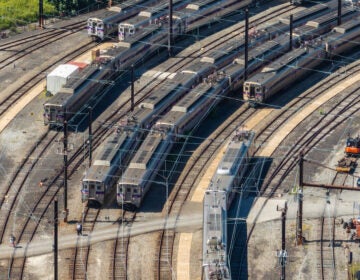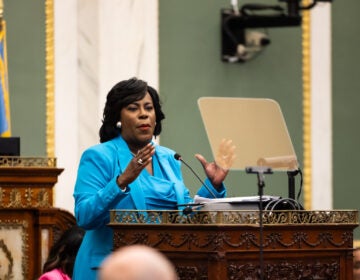$96 million federal grant should keep SEPTA rolling through 2024
The $96 million grant, courtesy of President Biden’s American Rescue Plan, will help plug holes in SEPTA’s operating budget amid reduced ridership.

SEPTA’s 15th Street Station near City Hall on July 15, 2021. (Kimberly Paynter/WHYY)
SEPTA is getting another infusion of emergency funding from the federal government.
The $96 million grant comes courtesy of President Biden’s American Rescue Plan. General manager Leslie Richards said Friday the money will be used to plug holes in the agency’s operating budget, which has taken a hit due to reduced ridership.
“With the additional money that we’ve received today, we feel that we can function towards the end of 2024. Before this money was announced, we weren’t gonna make it that far,” said Richards during a news conference inside SEPTA’s City Hall station.
Daily ridership remains half of what it was before COVID-19 hit the region two years ago, a data point costing SEPTA nearly $1 million a day. Agency officials are hopeful that will change with the pandemic waning and workers returning to the office.
Including Friday’s announcement, SEPTA has received roughly $1.6 billion in emergency federal funding, an amount that nearly equals the agency’s annual operating budget.
To date, the money has gone towards the purchase of personal protective equipment for employees; implementing advanced cleaning protocols for vehicles and at stations; and providing COVID-19 testing, among other things.
Richards said the emergency funding also played a role in the agency’s successful contract negotiations with Transport Workers Union Local 234, which came close to going on strike before the union reached a tentative agreement with SEPTA.
“More than anything though, these funds have empowered SEPTA employees to do what they do best: Serve our customers and move this region,” Richards said.
The general manager was joined by U.S. Sen. Bob Casey and U.S. Reps. Chrissy Houlahan and Mary Gay Scanlon, all of whom voted for the American Rescue Plan.
Casey said the money will have a real-life impact on residents across the region.
“This system allows people to get to school, to get to work, to get to the grocery store. To live their lives and then to get home at the end of the day,” Casey said.
Scanlon, who rode SEPTA for more than three decades before joining Congress, said the funding is especially important as the country is “turning a corner in our battle on COVID.”
“It’s critical that public transit be ready to receive everybody back,” she said.

Subscribe to PlanPhilly
WHYY is your source for fact-based, in-depth journalism and information. As a nonprofit organization, we rely on financial support from readers like you. Please give today.








